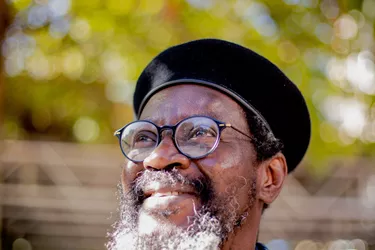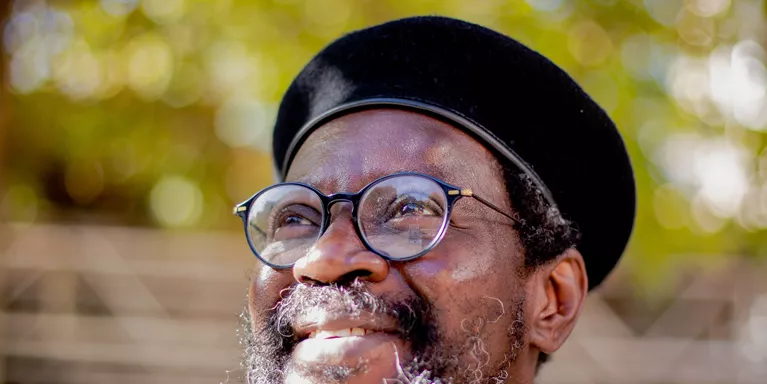My experiences on both sides of the Mental Health Act
Being sectioned under the Mental Health Act can be a frightening experience for many people. Here Colin tells us about his experiences of the Act, both as a patient and a practitioner.
In this blog post, I describe the escalators I have travelled on, from my life as a young person, to being sectioned to sectioning other people as a mental health practitioner. My experiences have highlighted to me some of the changes in the Mental Health Act which are most urgently required.
I am Colin, a Gemini, the third of six children from a black family. We were all assimilated into an education system of white images and history. Teachers saw my intellectual abilities as subnormal, and I experienced the Eleven Plus examination as my first mental health assessment.
After that I lost my laughter, my smile and my identity as hope moved to fear. I felt despair in being expelled from school, beaten by five white teachers to face the transition into the prison setting. I saw, knew, and experienced mental health legislation, and its sections. It dehumanised me and Colin became a schizophrenic. Unemployed, inside the cell of madness of a youth custody setting I was lost. I woke up one morning, locked away, told continually I was mad, mentally ill, a disease.
"My status as ‘mentally ill’ was complete, once I was interrogated by an audience of practitioners to see if I met their job specification of madness."
I felt I had become a risk to white norms on four occasions in a forty-year career.
I was promoted from a diagnosis of depression to schizophrenia. From the age of 17, I was locked and beaten in a padded cell, subjected to ECT, ECG, a cocktail of medication, OT, discharge, and re-admission. I felt like an alien, I had justified my own perception that my mind was disordered. I felt the pain of being a compulsory admission, medicated, and mistreated by a Mental Health Tribunal. They told me I was mad, gave me written section forms that denied my release from the slavery zones of mental illness. I was locked on a ward, drenched in my own faeces and urine, communicated to by nurses, social workers, and consultant psychiatrists as if I was inferior. I felt my dead tongue, my shivers, my bloated stomach that reduced me to a deadness. I could sense fear in the behaviour of white professionals. I saw how they activated the stereotypes of my past in their minds. They told me I was dangerous, unpredictable, dysfunctional, and angry. I felt I had become a caricature to a legislation that repressed me and criminalised me. I felt the erosion of Colin and my Gemini status.
The irony in my journey was that I became a mental health practitioner. I was inside the system that defined me as only a mental disorder, whilst also being admitted back to hospital due to a sense of ‘selling out’.
On two occasions I felt the enormous guilt of sectioning innocent black men. I felt I had conspired with a legislation that reduced me to spying. I felt troubled working with the police, psychiatrists, and GPs, getting warrants, entering homes, and removing people who looked like me, and shared my experiences. The despair built up in me, I smashed up my office, tried to jump out of the window and harm myself. I was lost in the system in which I was now sectioned back into. I now sat in the Priory Hospital as opposed to Maudsley, I was the only black man inside the lavish setting of single rooms, counselling, drama therapy, within a calm setting.
Since my last admission I have become a commissioner of mental health services, teacher of mental health practitioners, author, and activist for a co-production in which my voice is heard inside the mental health system. I sit at night in tears, in fear, hearing the voice of the Mental Health Act from mental disorder to compulsory admission to compulsory treatment order, all laying, waiting, in haunt of my next breakdown. Suicide seems an option, as you recreate the same mental health culture within your home. Your story as a black male mental health survivor becomes a source of a capital for exchange to help analyse the changes needed in the review of the Mental Health Act. I now see the Mental Health Act is an act, a performance as I need it to personalise me back beyond my victim status as a ‘schizophrenic’ to regain Colin my individuality as a Gemini.


Information and support
When you’re living with a mental health problem, or supporting someone who is, having access to the right information - about a condition, treatment options, or practical issues - is vital. Visit our information pages to find out more.
Share your story with others
Blogs and stories can show that people with mental health problems are cared about, understood and listened to. We can use it to challenge the status quo and change attitudes.

















